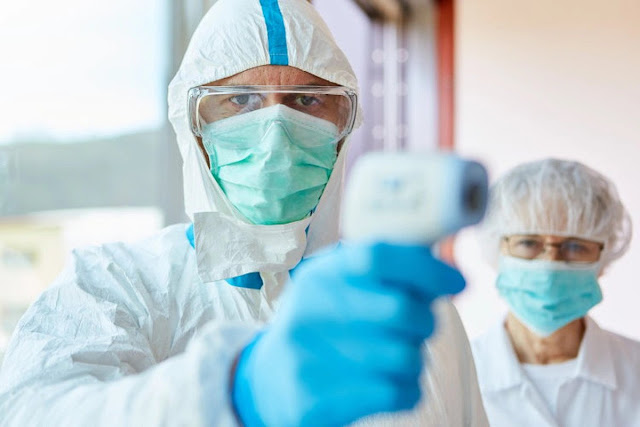Although nursing school is most certainly an investment in your future that will more than pay itself off, paying for your education as a nurse could present an initial challenge.
The cost of nursing school can vary quite a bit on the type of school you choose—such as if you go to a private school vs. a community college—and the type of program you are looking to enroll in, such as an Associate or Bachelor’s degree.
Typically, a community college will provide the most affordable route to earning your nursing degree, followed by a state university, and lastly, a private one. However, that can really depend on what kind of financial aid and scholarships you have, so there is no way to predict exactly how much your degree will cost you.
Overall, you can expect that the cost of a nursing degree can range anywhere from around $20,000 to upwards of $80,000. As just one example, the cost of an Associate Degree in Nursing (ADN) at a community college in Michigan is estimated to be just over $22,000 in tuition.
Beyond Your Tuition
Outside of the direct costs of your school’s tuition, you will also want to anticipate some of the “hidden” costs of nursing school. From the costs of scrubs to the income you might you lose, here’s a look at what you can expect to budget for during nursing school.
1. UNIFORMS AND ACCESSORIES
You will be required to purchase your own uniform for your nursing school clinicals, as well as the accessories you need, such as your stethoscope, scissors, and penlight. Most school programs have a package you can purchase through them directly, but a standard-issue professional stethoscope—such as a Littmann—can run you about $90.
A set of scrubs can be as cheap as $20, but if you have back-to-back clinical days, you might also consider purchasing an extra set or two—unless you really, really love laundry. (Also, for the record, I couldn’t afford more than one set of scrubs, so sometimes, you do what you have to do!)
2. HEALTH COSTS
You will most likely accrue some health-associated costs as part of your nursing program. These may include a drug screening test, a background check, a TB test, bloodwork, and any required booster shots, and a Hepatitis B vaccine series. You may also be expected to purchase your own malpractice insurance as a healthcare professional.
3. BOOKS
I won’t lie to you—some nursing books can be really, really expensive. Even one book for one nursing class can cost several hundreds of dollars. Your book expenses could range from a few hundred to upwards of $700 each semester.
4. TRANSPORTATION COSTS
Nursing school means clinicals, and clinicals means getting there. I’ll never forget my first day of nursing clinicals in the winter weather—I blew a tire as soon as I get down the road, right in front of someone’s driveway, blocking their way to get to work, too. I remember sitting in my car, just sobbing because I didn’t even have money to pay for a new tire.
So, whether you’re driving and have to account for extra mileage, gas, and vehicle maintenance, or have to find a new public transportation route that works for you, don’t forget additional transportation costs in your budget.
5. CHILDCARE
If you’re a parent, you will most likely need additional childcare not only for your classes and clinical hours, but for your studying outside of school as well.
6. DECREASED INCOME
In addition to the increased costs you may accumulate during nursing school, you may be faced with decreased income as a result of cutting back on your regular work hours. Although many people have to work during school, many people also have to reduce some of their workloads in order to free up time for classes, clinicals, and studying.
Resources to Pay For School Costs
The hidden costs of nursing school may seem discouraging at first, but as a future R.N., you’re resourceful—so here’s how you can make those expenses work within a budget.
SCHOLARSHIPS
Many people think of scholarships as something you can get at the start of your college journey, but in actuality, you can apply for scholarships as you earn your education too. Remember that sad scene of me crying in the snow with a flat tire that I couldn’t afford? Well, the very next day, I got a check in the mail from a random nursing scholarship that I had applied for—it was just enough to cover the cost of a new tire! Keep applying for all the scholarships you can, even throughout school. Check with your financial aid office for local scholarships, search online, or use a third provider like FastWeb.
EMPLOYER TUITION ASSISTANCE
If you are currently employed in a healthcare setting, be sure to check with your HR department about any tuition assistance that is available to students. And if you know where you would like to work after graduation, don’t be afraid to ask if they would be willing to work with you in advance—they may be able to offer you some kind of assistance in exchange for a job guarantee at graduation.
BUY SECONDHAND AND USED
The unfortunate part about required school uniforms is that once you graduate, you probably can’t use those scrubs again—but that does mean that every semester, there is a new crop of new grads who can supply you with scrubs at a discounted (or free!) price. Check if your school offers a Facebook group or used scrub sale at the end of the semester.
You can also do the same for books, and be sure to check your school’s bookstore for used books before buying new. When I couldn’t afford my nursing school books, I actually used the syllabus to figure out which pages I specifically needed, and copied pages in the library to get through. It’s not a strategy I necessarily recommend, but it costs dollars instead of hundreds of dollars. A lot of books can be purchased as e-books for much cheaper than physical books, too.
Lastly, don’t be afraid to ask your instructors what books they would recommend that you purchase—and which ones could be skipped. I employed this strategy all throughout nursing school and found that almost all of my professors were more than willing to help me save money by helping me prioritize my purchases.
WORK-STUDY POSITIONS
Work-study jobs are really an ideal situation for a student nurse, because they allow you a set compensation and usually provide you with plenty of time for studying, as well as valuable experience in your field. You may get a work-study position with a nursing professor, for instance, assisting a professor in their duties while studying in your downtime.
Work-study positions are provided through your financial aid package, so don’t forget to fill out the FAFSA and make sure to update it if anything changes over the course of your education.
WORKING THE NIGHT SHIFT
You might have to experiment with what works best for you and your schedule (as well as your sanity!), but depending on the clinical area, working night shift might free you up to still earn money—oh and hey, night shift differential—and still make it to class. I speak from experience here and found that the quiet early AM hours also let me squeeze in some studying as well.
The costs for making it through nursing school can be very different based on your own individual circumstances and although at times, you may have your “flat tire” moment too, just keep in mind—when it comes to investing in a degree that will not only change your own life, but the lives of so many you care for—the work you are putting in now will definitely be worth it.
Source: nurse.org










